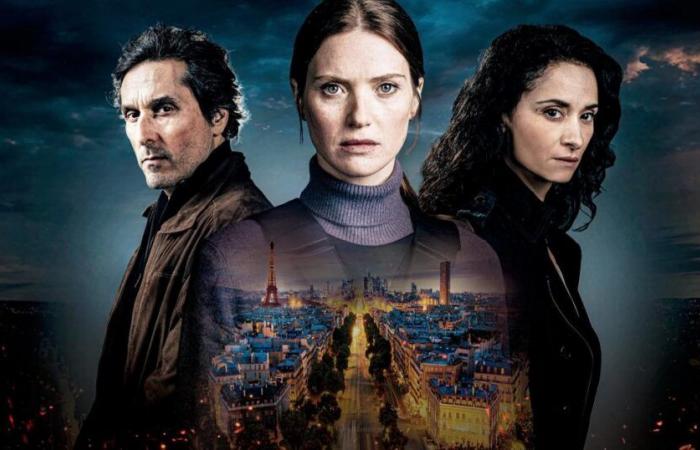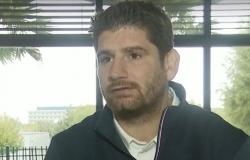Caroline DUBOIS/IM_photo/Shutterstock/TETRAMEDIA/M6
In this miniseries, Fleur Geffrier and Rachida Brakni play two agents who track down the sponsors of the attacks.
How to return to fiction on the national trauma that is the attacks of November 13, 2015 against the Stade de France, the Bataclan and the terraces of the cafés des 10e et 11e districts? After In therapy of Arte and A devoted friend on Max, it's a miniseries from M6 which returns to this night of horror. Taking the same starting point as Cedric Jimenez's film November, The Spies of Terror recounts the hunt for the members of the November 13 commandos then broadens the horizon by detailing the months that followed, less chronicled in the media, with the elimination of the sponsors and organizers of the attacks.
Based on the work of Mediapart journalist Matthieu Suc, the investigation is seen through the eyes of Lucie (Fleur Geffrier, Drops of God), anti-terrorist agent of the DGSI, Malika (Rachida Brakni), experienced analyst of the DGSE and Vincent (Vincent Elbaz), major at the territorial DGSI of Lille, recruiter of a promising source. Lucie and Malika will join forces to flush out terrorist cells across Europe. And this, despite the rivalry between the two institutions and the hostility of some of their colleagues.
Also read
The spies of terror on M6: how fiction lifts the veil on the attacks
Absence of sensationalism
A race against time without the slightest sensationalism. No corpses or pools of blood. The series prefers the closed doors of meeting rooms, the sadness of dingy cafes where information exchanges take place or the solitude of spinning mills. Intimate issues are also present. Particularly the way in which post-traumatic shock and guilt affect those who have been close to the horror. Couples and children are put to the test by absence and exhaustion. It also shows the lack of resources of the intelligence services, their inability to respond to political demands and reveals dissensions with sad consequences.
« The success of November showed us that the subject may be anxiety-provoking, but it was interesting. We wanted to return to the helplessness in the face of this surge of violence, the rage, the fear that we all experienced that evening but from a cathartic and more “positive” angle. »remembers producer Emmanuel Daucé, to whom we also owe A French village. Matthieu Suc's book described how Daesh terrorists organized themselves. Out of the question for showrunner Franck Philippon and director Rodolphe Tissot to focus on the jihadists. They start in reverse negative, and tell how the French intelligence services dismantled them.
Their key word? Do not distort the facts. Rely on archive images when they exist rather than reconstructing them. Make chaos understandable. Against a backdrop of sometimes technical jargon. They work with Matthieu Suc, collect the minutes. Among their screenwriters is a veteran of the services who writes under the pseudonym Daniel Muray. He sheds light on the functioning of these institutions, the way of talking to each other between colleagues. The Ministry of Defense and the Armed Forces also lent its aid and equipment, and allowed filming on one of its bases.
« We wanted to pay tribute to the astounding commitment of these women and men who remain in the shadows and derive no personal benefit from it, which is out of place in our narcissistic world. They are not superheroes but normal people with family problems. But at the end of the day, they're the ones who protect us »argue Franck Philippon and Rodolphe Tissot. And to notice: « They bruised themselves to find a way to overcome, to fight back, to counterattack knowing that this victory will be followed by something else. They are waging a never-ending war that cannot be entirely victorious. »
France
TV






